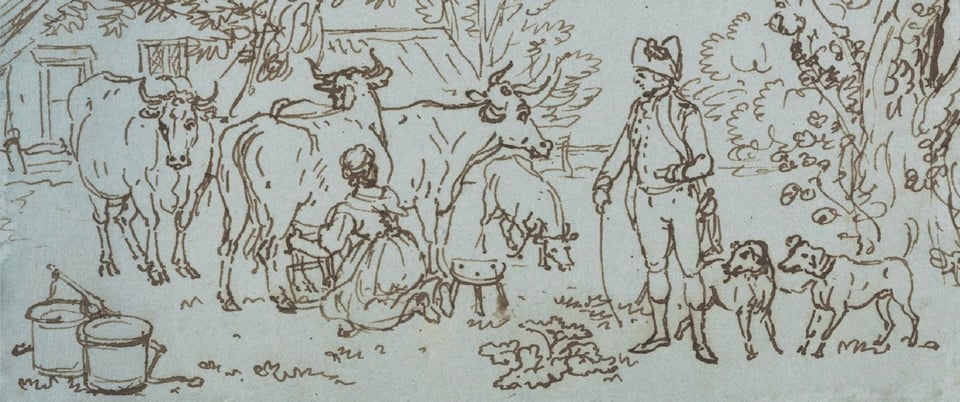Eat This Newsletter 246: Raw Truth

Hello
After last week’s recall of contaminated plant-based beverages, something else to cry over: serious illness caused by unpasteurised milk. If people won’t heed public health warnings, maybe they needed to be protected from themselves.
Why Weren’t People Told?
Bill Marler, an American lawyer and scourge of food companies and their regulators, had this to say a couple of weeks ago:
The more I think about this the harder it is to figure out why public health would sit on the scientific fact that a food producer of a known high-risk food is sickening hundreds.
“This” is an outbreak of illness directly traced to unpasteurised milk from Raw Farms LLC in California. The outbreak started in October 2023, and reportedly ended in May of this year. Marler’s complaint is that the California Department of Public Health (CDPH) did nothing, after an initial warning in October and a couple of follow-up Xits, to inform people of the dangers of unpasteurised milk in general and Raw Farm milk in particular. By February 2024, four months after the initial warning, 165 people had been sickened and 20 hospitalised, though there were no known fatalities.
Marler shared the CDPH reports with the Associated Press, which noted that avian ‘flu, currently detected in 140 US dairy herds, offers another reason to avoid raw milk, because pasteurisation kills the virus.
Marler is suing Raw Farm on behalf of at least two plaintiffs, citing 10 previous outbreaks associated with Raw Farm’s milk.
Here’s where we differ. Marler says, “Setting aside the ‘food freedom’ argument for a moment that people should be able to eat or drink what they want and feed their kids the same; what about simply informing the public of the facts and letting the public decide for themselves?” But we know that these days especially the public either does not understand or chooses not to believe “the facts”.
USA Today has more details on Raw Farms and its history of outbreaks, and points to “social media consumers” who buy into “claims [that] have all long since been debunked”. And yet …
[A]nti-pasteurization dairy advocates have continued their crusade online, with some saying they have begun to intentionally seek out milk contaminated with H5N1 to “build up” what they believe will be a “tolerance” or “immunity” to the virus.
Coast to Coast
Across the country, meanwhile, in Pennsylvania, Amos Miller, an Amish farmer, “is willing to risk jail time over sales of raw milk,” according to an article in Modern Farmer. Illness caused by toxic strains of E. coli were traced to his farm and he did not have the required state permit to sell raw milk. Miller argued that his clients were private individuals so he did not need a permit. The judge, however, found for the state, but clarified that indeed Miller did not need a permit to sell his milk outside Pennsylvania. That, however, falls foul of the Food and Drug Administration (FDA), which since 1987 has insisted that all milk be pasteurised for interstate commerce.
There’s a lot more in the article about the patchwork quilt that is raw milk regulation in the United States, varying from outright bans through to raw milk in retail shops. In the end, though, Modern Farmer notes:
Before pasteurization, raw milk products accounted for 25 percent of food-borne illnesses, including transmission of tuberculosis and typhoid. Since pasteurization, milk is traced to less than one percent of illness outbreaks.
What now?
To be clear, I do not think there is anything inherently wrong with unpasteurised milk as long as dairy farmers are scrupulous about hygiene and testing. If they aren’t, they should be held to account, promptly. Equally, I don’t think any of the health claims made for raw milk withstand scrutiny. Holding those who make them to account is probably impossible. There is, however, one area in which raw milk advocates may have a claim, and that is in the matter of taste. Modern, industrial milk is remarkably bland stuff but if you are lucky and have a small, independent dairy close at hand you don’t have to risk raw milk to enjoy full-flavoured milk.
With that, let me leave you with two recent episodes.
- Anne Mendelson, on the history of pasteurisation and the myth of milk as superfood.
- Cath Kinsella, of Saltrock Dairy in Ireland, on her efforts to make pasteurised whole milk from their small herd available to the wider public
Take care

Add a comment: